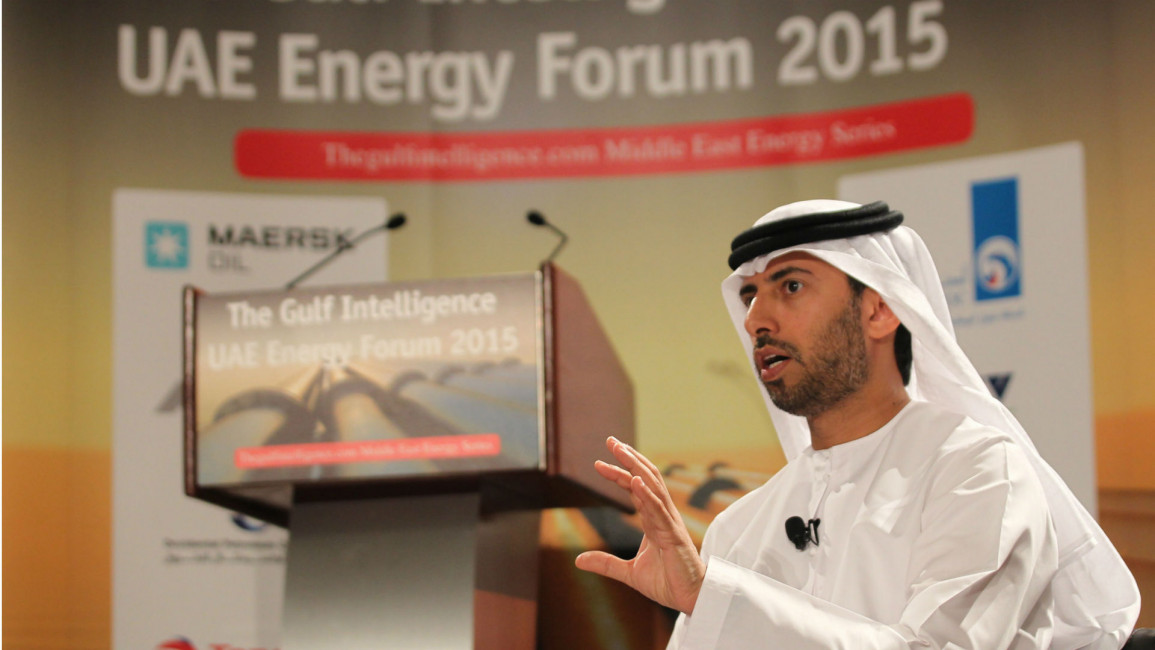UAE says it will keep pumping oil
Suhail Mohamed al-Mazrouei, the UAE's oil minister, said on Tuesday that the Organisation of Petroleum Exporting Countries (Opec) would not change its decision on oil output.
Due to Opec's announcement that production would not be cut by the oil producing states, the minister said that it was unlikely that oil prices will rise soon.
"By not panicking, and readjusting, or cutting the output of Opec countries, we are telling the market and the other producers that they need to be rational. They need to be like Opec," he said during an energy conference in Abu Dhabi.
He blamed a glut in the market due to a flood of shale oil on the market, mainly coming from the US and Canada. The situation needs to be stabilised, he added.
The minister said that the fall in oil prices would not affect the UAE's investments and that the Gulf state would continue to build on its total production capacity.
It will be some time before oil prices stabilise, but this depends on the "rational" actions of non-Opec oil producing states, he said.
Oil prices fell to a six-year-low today with Brent crude selling at $45.84 a barrel, its lowest price since March 2009, while US crude also fell to $44.86 a barrel, its lowest price since April 2009.
Mazrouei said that such a drop in prices was unjustified and Opec's decision against cutting production was the correct remedy to the problem.
Opec are unlikely to hold a meeting until June, so there is little chance that oil states will cut production to increase oil prices in the short-term.
The price that can keep shale oil flowing is going to be the fair price for conventional producers to produce, the minister added.
Despite the problems caused by shale producers, they should act as "swing producers" to step in to fill shortages in oil supplies, said Mazrouei.
This article is an edited translation from our Arabic edition.



